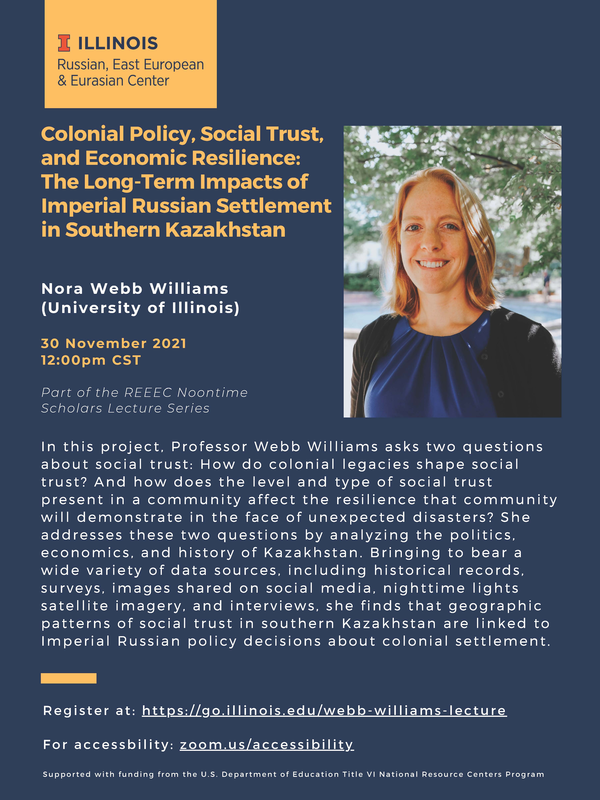REEEC Noontime Scholars Lecture: Nora Webb Williams, "Colonial Policy, Social Trust, and Economic Resilience: The Long-Term Impacts of Imperial Russian Settlement in Southern Kazakhstan"

- Sponsor
- REEEC
- Speaker
- Nora Webb Williams (Assistant Professor of Political Science, University of Illinois)
- Cost
- Free and open to the public.
- Registration
- Registration
- Contact
- REEEC
- reec@illinois.edu
- Views
- 239
Social trust is a driver of many important political and economic processes and outcomes, including democracy and economic development. In this project, Professor Webb Williams asks two questions about social trust: How do colonial legacies shape social trust? And how does the level and type of social trust present in a community affect the resilience that community will demonstrate in the face of unexpected disasters? She addresses these two questions by analyzing the politics, economics, and history of Kazakhstan. Bringing to bear a wide variety of data sources, including historical records, surveys, images shared on social media, nighttime lights satellite imagery, and interviews, she finds that geographic patterns of social trust in southern Kazakhstan are linked to Imperial Russian policy decisions about colonial settlement. In Almaty oblast, where 19th and early 20th century colonial settlement was relatively intense compared to neighboring Jambyl oblast and was coupled with higher rates of Kazakh land displacement, she finds lower rates of social trust in formal state institutions in the early 21st century. Those social trust patterns also map on to variation in rural village resilience after the collapse of the Soviet Union. On average, communities in Almaty oblast, with lower vertical trust, were better able to rebound after the dissolution of the Soviet Union in 1991.
Nora Webb Williams is Assistant Professor of Political Science at the University of Illinois.
Please register for this lecture at https://go.illinois.edu/webb-williams-lecture